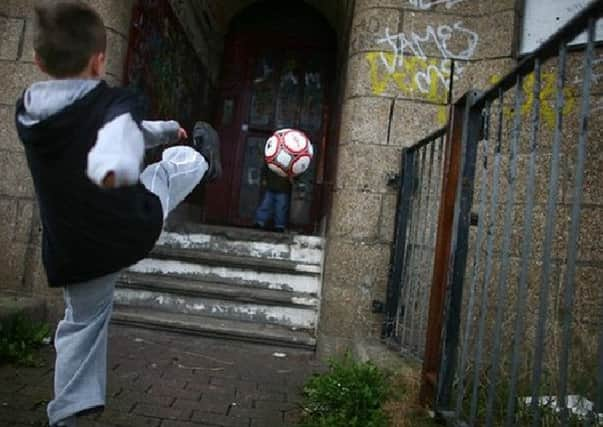Fife pushes ahead with universal basic income plan


More than 150 people are expected in Kelty on Saturday to discuss the potential of universal basic income (UBI) – a regular unconditional sum paid to all adults regardless of employment status.
The event, organised by the newly established Citizens Basic Income Network (CBINS), will hear from academics Professor Karl Weiderquest and Professor Mike Danson as well as politicians from all major parties.
Advertisement
Hide AdAdvertisement
Hide AdIt is hoped the meeting at Kelty Community Centre will be the first step in securing an eventual UBI pilot in Fife. As welfare is a reserved matter, the Westminster Government would have to approve any project.
The Kingdom’s interest in UBI was stirred when the independent Fairer Fife Commission, tasked by the local authority to address the challenges that arise from poverty, recommended a universal basic income as one of 40 recommendations published at the end of 2015.
There have been limited but successful UBI pilots in parts of the US, and Finland and Holland last year became the first countries in Europe to test UBI.
In Utrecht, 250 citizens currently receiving government benefits are to be given a guaranteed income of €960 (£823) a month, while in Finland two million unemployed people are to receive €560 (£480).
Advertisement
Hide AdAdvertisement
Hide AdThose in receipt of the payments do not have to account for the way they spend the money or reveal whether they are seeking employment.
Researchers will then able to assess what effect removing conditionality has on the employment market.
The concept of UBI has won backing from across the political spectrum. Among the speakers at Saturday’s meeting will be Conservative councillor Dave Dempsey, who has said the attraction of the UBI lies in its “simplicity” compared to the present system of benefits.
Willie Sullivan, chairman of CBINS, said there was a growing recognition that the welfare state had not kept pace with societal changes.
Advertisement
Hide AdAdvertisement
Hide Ad“Our welfare state was created over 70 years ago and the basic principles have barely changed while things like work, family, and ideas of time and place have changed beyond recognition.
“Our current welfare scheme is unable to evolve to meet these new times and has become a giant bureaucratic maze of punishment and control.
“A basic income would give a secure base from which all Scots can grow out and up - as much as they want or need to.
“It would release some people from the benefit trap and allow others to do more caring and community work or to be creative, but for most people it would just make sure they have a secure base that means they can live life a little less anxiously.”
Advertisement
Hide AdAdvertisement
Hide AdPaul Vaughan, head of corporate development at Fife Council, said: “It’s a sad fact that some 75,000 people in Fife are living in poverty. As a council we can’t solve this problem alone but, along with other local agencies and partners, we’ve pledged to work better together to respond to the Fairness Matters report.
“But this is a complex issue and we’re at the beginning of a long process. Initially we’re seeking co-operation with the Scottish and UK Governments and the various departments that would need to be involved.
“The view of the Scottish Government is that they have some of the authority, but not all of it, to push the pilot forward.
“We will draw up a plan we can give to councillors later in the year about how we see the pilot going.”